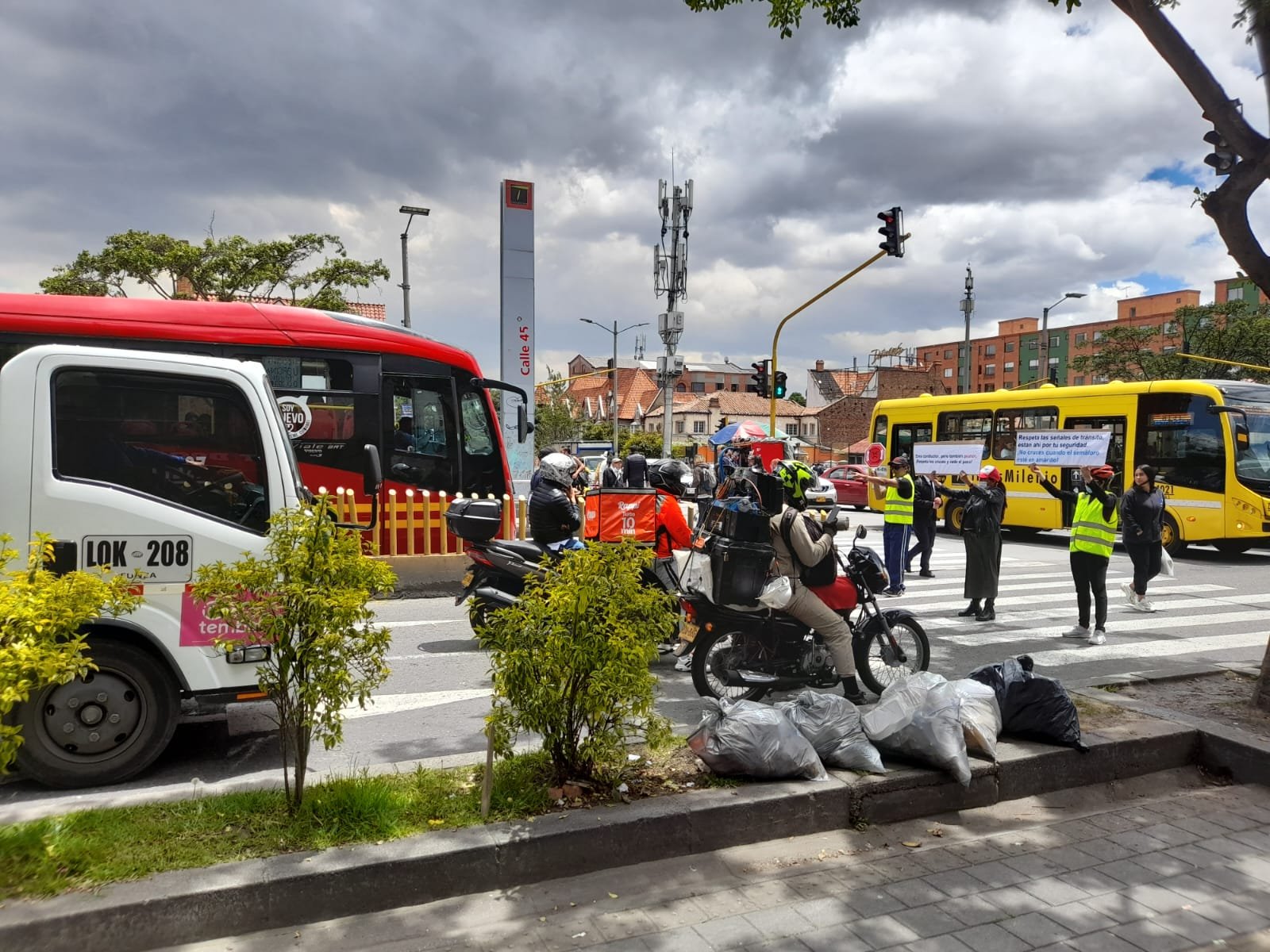pedestrIAN FIRST
LED BY Maryfely Rincón from colombia
In Bogotá, road crashes continue to be a problem that affects the well-being and safety of people, especially with pedestrians and cyclists being among the most vulnerable. The situation is worsened by the fact that there is a lack of participation in spaces that discuss pedestrian policy. The needs of children, youth, people with disabilities, women, and the elderly remain undiscussed and unresolved.
The Pedestrian First Project aims to raise awareness around pedestrian vulnerability and the need to respect their integrity. It will amplify the message about how road users are co-responsibility for creating safer spaces and how they can advocate for safer roads in Bogotá.
The work to be done through the project will touch on the gender approach that will also help protect women within the transport system.
Photo from Road Traffic Signs
ABOUT THE PROJECT LEAD
Maryfely is a 24-year-old urban Manager from the Universidad del Rosario (Colombia). She is currently employed as a project coordinator at Despacio where she works as a data analyst, content creator, and content manager. She is also the creator and editor of documents and publications related to road safety and urban and active mobility.
”I proposed this project because I believe that we can't ignore the fact that people are still dying on the roads every day. No one should die from road crashes! Especially young people and children.”
PROJECT UPDATES
During the implementation of the project, Maryfely and her team went to different travel routes and invited young and diverse citizens to used a reverse periscope to live the experience of children and short people when walking. Through the tool, they were able to see streets and walkways through the perspective of children and disabled road users.
The participants of the exercise were asked to identify needs for infrastructure improvements for a safe and comfortable walking. The participants shared the requests that they would make to the decision-makers to improve and promote the walk in the city.
To raise awareness on the importance of more walkable streets that cater to vulnerable road users, Maryfely and her team developed two theatrical interventions that portrayed dramatised scenarios on the street.
Each of these scenarios was accompanied by signs containing messages aimed at promoting respect for pedestrians on the roads, directed at different participants in the traffic flow. Additionally, a flashmode performance was also carried out. It called the attention of pedestrians and motorized vehicle drivers who were in the area, about the importance of recognizing that we are all pedestrians and must respect each other.
Local Actions winner Maryfely Rincon and her team from Dispacio created a Manifesto titled “Manifiesto Ciudadano: Peticiones Por el Derecho a Caminar la Ciudad” or “Citizen Manifesto Petitions for the Right to Walk in the City” within the framework of the ‘Pedestrians First’ Project. According to the team, the Manifesto is a compilation of the local citizens’ experiences and demands for safer roads in the city of Bogota, Colombia.
The citizens involved were comprised of people of all ages, each advocating for safer and more comfortable walking experiences for road users of the city.
Within the framework of the celebration of District Pedestrian Day and in alliance with the Secretariat Mobility Maryfely and her team carried out a three-station circuit that had the objective of promoting awareness and education among citizens in matters of road safety, active mobility on foot and the specific needs of the various pedestrians in Bogotá.
The Circuit Stations are as follows; (1) Change of Perspective, (2) Road Safety "Golosa", (3) Creativity on the Road.
PROJECT GALLERY


























